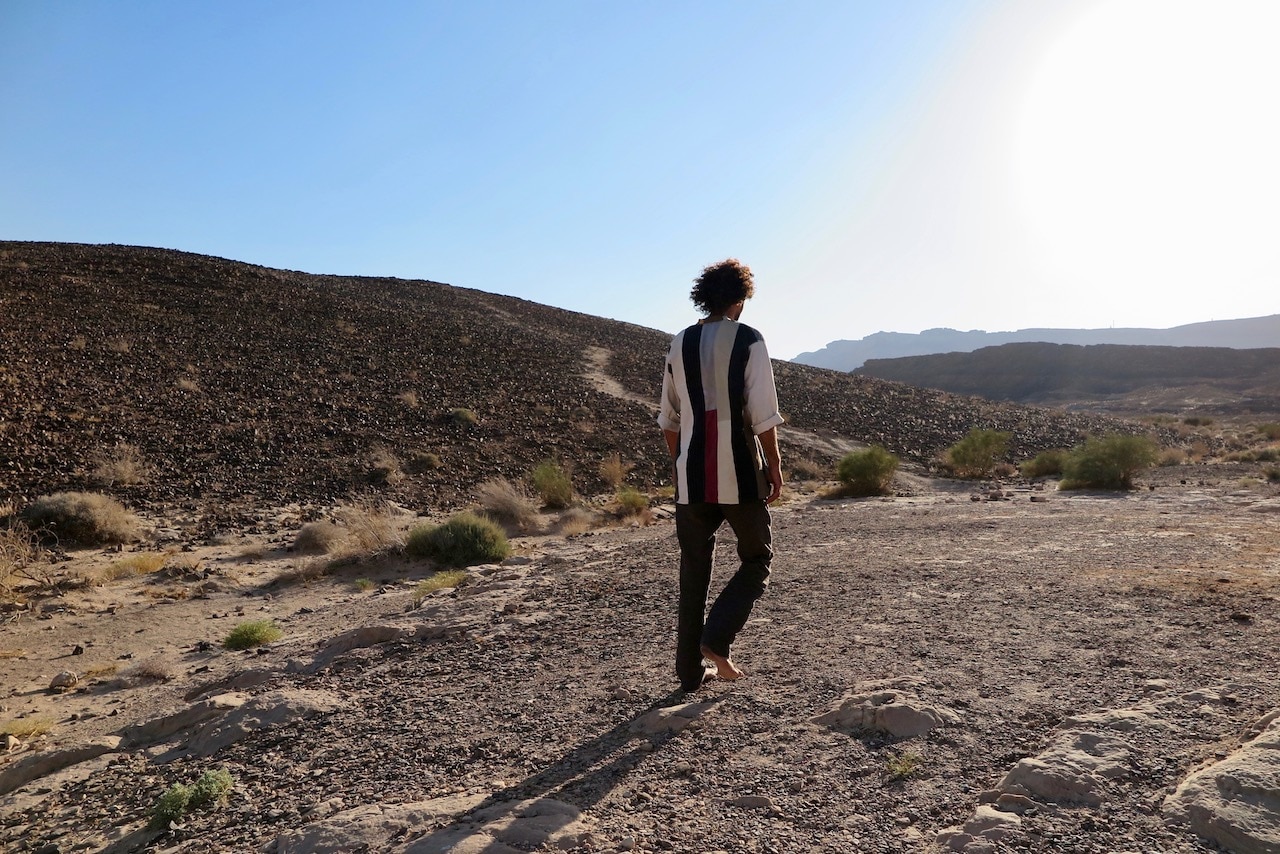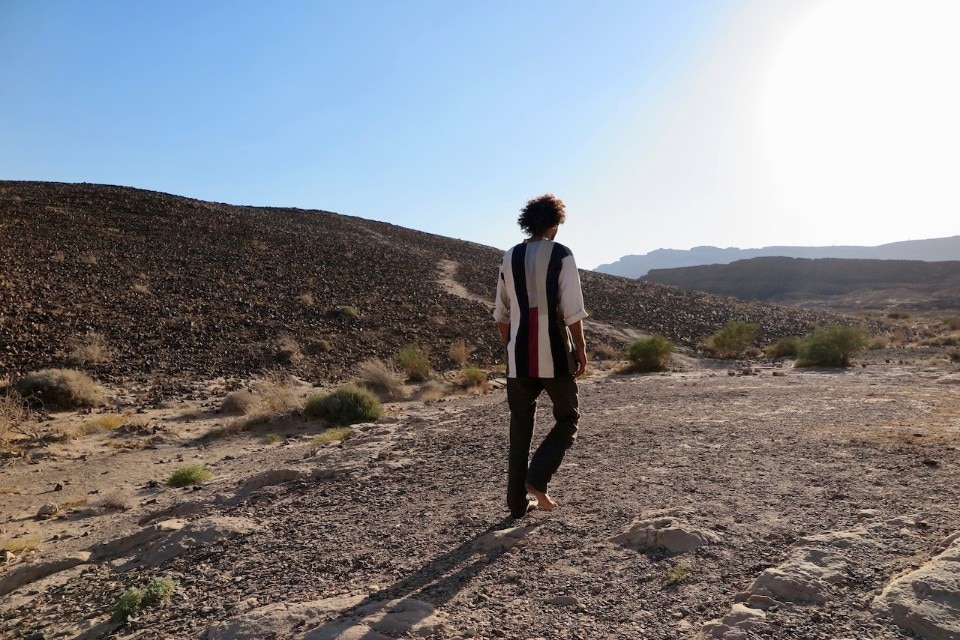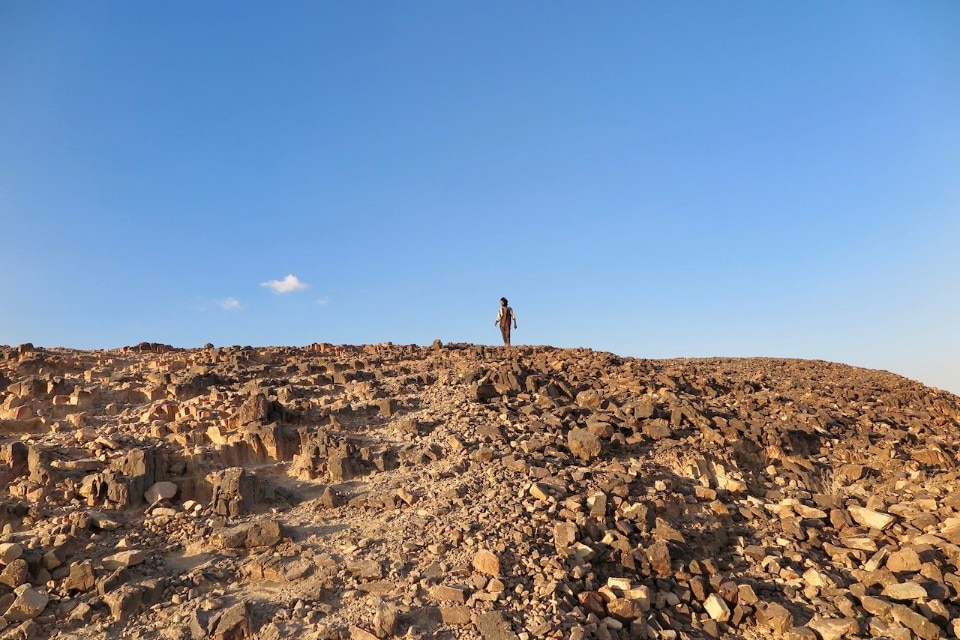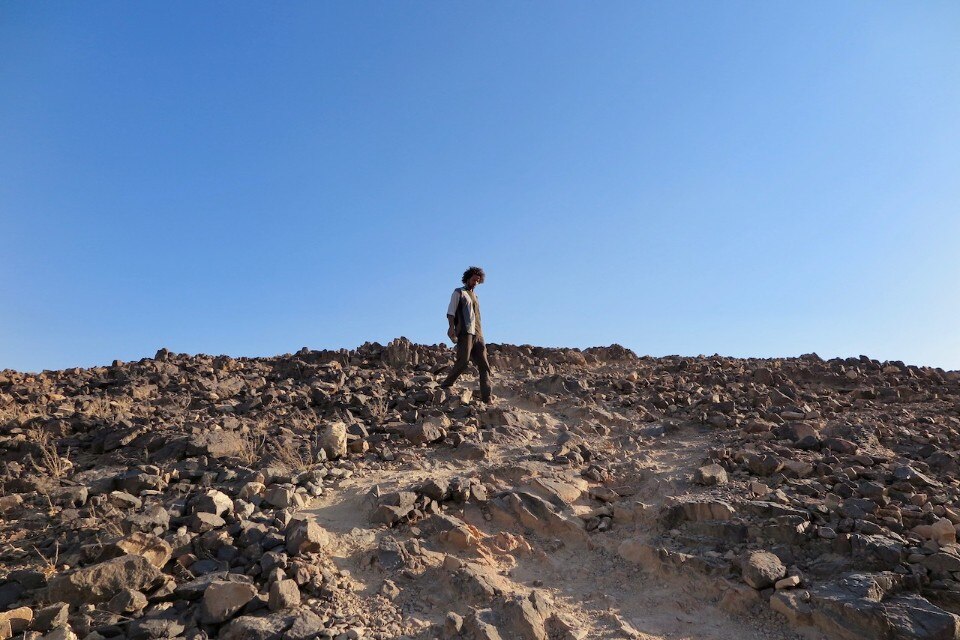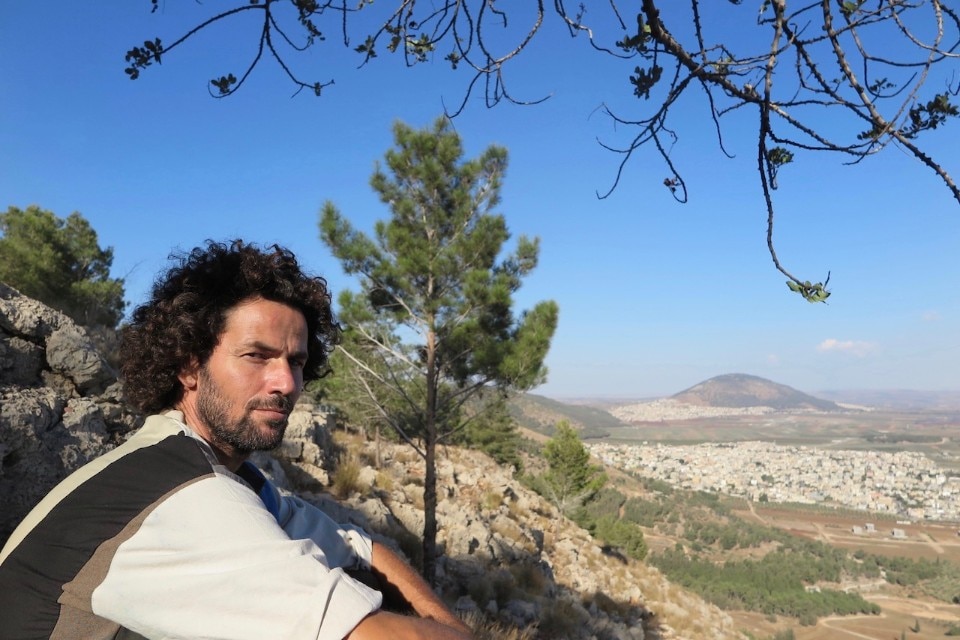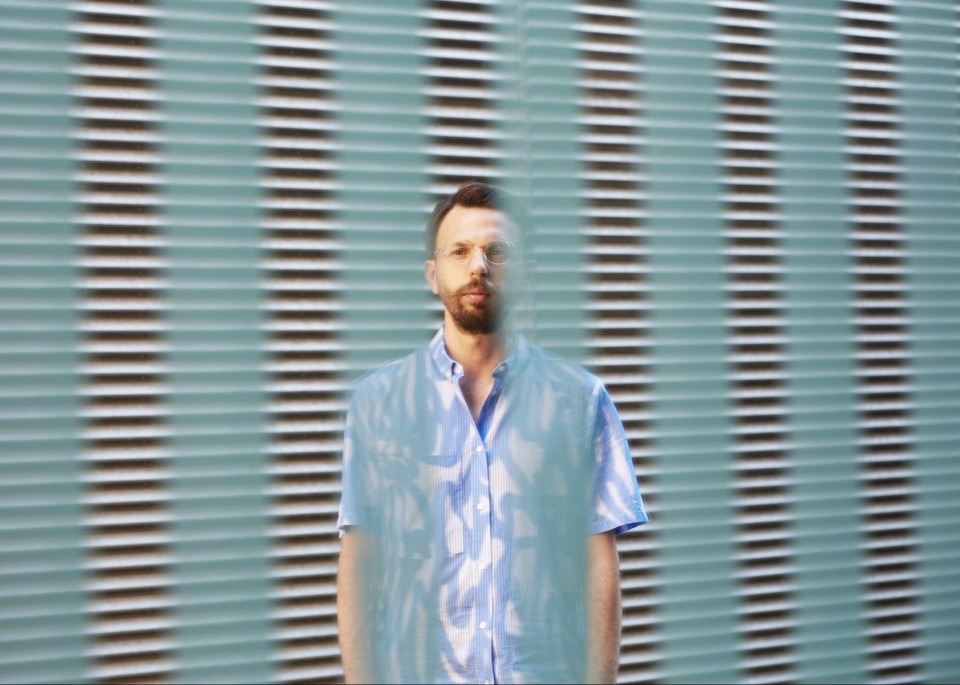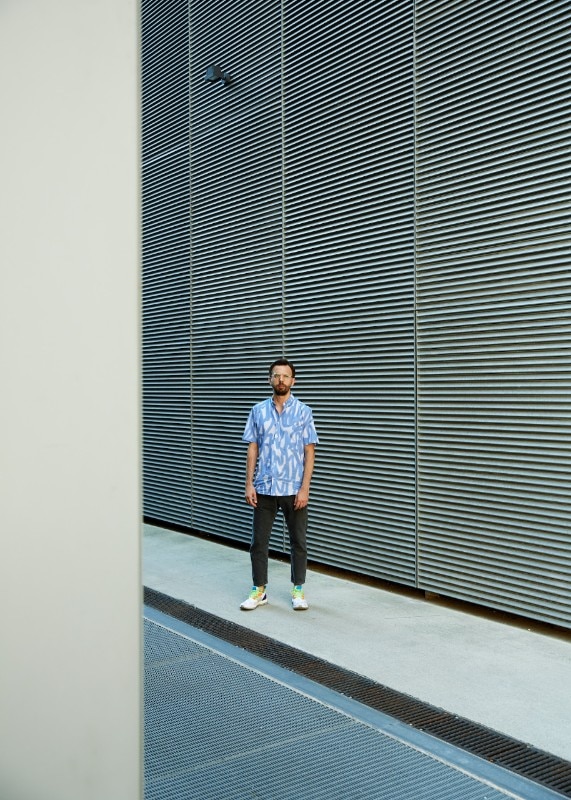You’ve been working on Dialogue with the Unseen for a good five years. Generally, your works have long gestation periods because they’re made up of real experiences and real relationships established with the people and places you choose as your subjects. What are the origins of this work? Did what you have in mind originally correspond to the twin-channel video installation on show at MUDEC in Milan until 16 June, or did the work develop in in unpredictable ways over time?
It all started in 2014, when I met Saleh Bakri (a well-known actor in the Middle East and the leading figure in this work – Ed.) for the first time, in his house in Haifa. Through ongoing dialogue and engagement to overcome the problems of war and occupation, we decided to develop together a new narrative about Palestine, with the aim of surmounting the theme of conflict.
What interests me are the strategies that individuals use at a community and personal level to overcome the trauma. I believe that this is art’s function: changing our points of view away from those we are used to, so that we stop perpetuating the same patterns. It’s no surprise to me that the generation before ours has not found the stereotypes of the Palestinian question in this discourse.
My aim has been to use the sensibility and language to probe the conditions and possibilities of a community of practice, one that chooses to make art in a context like this, in its own language, Arabic. The initial idea was to make a documentary, but thanks to the opportunity MUDEC provided to exhibit there, the work developed into a video installation.
The subject of this new work is a thorny one: the conflict between Israel and Palestine. You explore this relationship – not necessarily a conflictual one – through a dialogue involving Saleh Bakri and two young Palestinian writers. You call your work a “political pilgrimage” – and you haven’t held back on the problematic nature of the theme. What contribution are you making here?
Taking that specific context as a starting point, my aim has been to tell a universal story. Wherever you’re from, whatever your background or religious belief, you can ask yourself the same questions – ones that are both simple and profound – about what it means to be with other people. Over the last five years, I have seen for myself that the political situation in the Middle East is so complex that it is difficult to take a clear-cut position on it.
I used my role, with the tools I had available, to transform these encounters into an aesthetic interpretation of the place and the community that I came to know. I took my inspiration from Pasolini, who in his film Location Hunting in Palestine recounted the problems he had finding faces that looked like they came from antiquity and the landscape that he imagined he would find in Israel. I tried to overcome the limits of the visual flattening that comes with the dynamics of globalisation, to narrate a reality that is not easily visible.
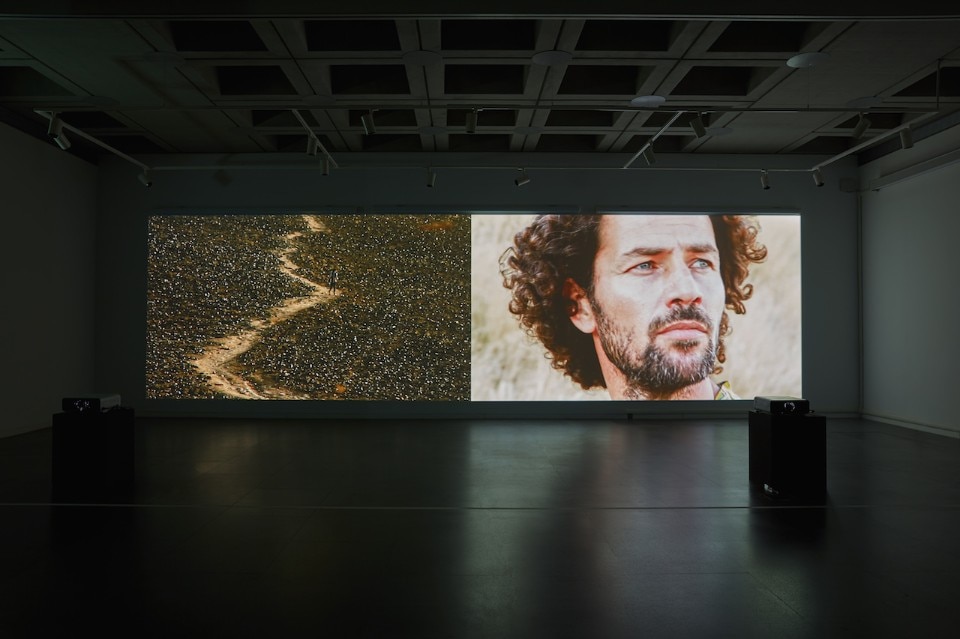
What exactly is the “unseen” of your title?
There are many possible answers to this question. I would like spectators – once they have immersed themselves in the installation, listened to the dialogue and walked through the spaces of MUDEC – to find their own answer. What is the unseen for you?
In your artistic practice, the relationship with the other – with the subject of the work, but also with the public – is central. There is a responsibility relating to the role of the artist in society that you feel very powerfully.
One of my aims, as an artist, is to spark a desire for connection and a capacity for action, to experiment with alternative methods from the ones we know. The space of relationships is also a space of resistance. Different possibilities are imposed on it, allowing us to see things from a fresh point of view. That said, I don’t believe that you can achieve this result if you understand participation and relationality as elements that are completely internal to artistic practice … Engagement, active listening and identifying what’s urgent are made possible by engaging in dialogue with each other, face to face.
It’s a question of responsibility. Why are you making art and why are you seeking it out? Together with the need to answer this question on an individual level, the role of trust in relationships is becoming ever more important for me. This means dealing with the suspicion that initially marks dynamic relationships, and above all the continual possibility of using different strategies to renegotiate our roles.
Opening picture: Valerio Rocco Orlando, Dialogue with the Unseen, 2014-2019. Production still. Courtesy of the artist
- Exhibition:
- Dialogue with the Unseen
- Artist:
- Valerio Rocco Orlando
- Curator:
- Alessandra Pioselli
- Venue:
- Mudec
- Where:
- Milano
- Opening dates:
- 7-16 June 2019


